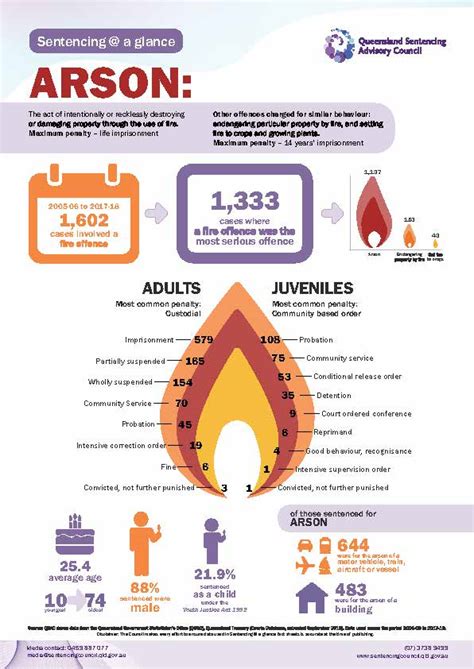Arson Sentences: A Lawyer's Insight
Arson, the intentional and malicious burning of another's property, carries severe legal consequences. The penalties for arson can vary dramatically depending on numerous factors, making it a complex area of law requiring expert legal counsel. This article provides a lawyer's perspective on arson sentencing, exploring the variables that influence the outcome and offering insights into the legal process. We will delve into the specifics, ensuring you understand the potential ramifications of this serious crime.
What Factors Determine Arson Sentences?
Arson sentencing is far from uniform. Judges consider a multitude of factors when determining the appropriate punishment, including:
-
The extent of the damage: A small shed fire will result in a drastically different sentence than a blaze that destroys a multi-million dollar building, causing significant property damage and potentially endangering lives. The economic impact is a major consideration.
-
Intent and planning: Was the arson a spur-of-the-moment act, or was it meticulously planned? Premeditation significantly increases the severity of the crime and the potential sentence. Evidence of planning, such as purchasing accelerants or surveillance of the target, will weigh heavily against the defendant.
-
Presence of victims: Were there any individuals in the building at the time of the fire? The risk to human life dramatically elevates the gravity of the offense. If injuries or fatalities result, the sentence can range from significantly longer prison terms to life imprisonment without parole, depending on jurisdiction and specific circumstances.
-
Prior criminal history: A defendant with a history of violent or property crimes will likely face harsher sentencing than a first-time offender. The judge will consider the defendant's overall record when determining the appropriate punishment.
-
Cooperation with authorities: Showing remorse and cooperating with investigators during the investigation can sometimes lead to leniency. Providing information leading to the apprehension of accomplices may also influence the sentence.
-
Mitigating circumstances: These are factors that lessen the severity of the crime. They may include mental health issues, substance abuse problems, or duress. However, it is crucial to understand that mitigating circumstances do not guarantee a reduced sentence; they simply offer a possibility for leniency.
What Types of Arson Are There, and How Do They Affect Sentencing?
The classification of arson significantly impacts sentencing. Different jurisdictions may have varying terminology and classifications, but generally, the severity increases with the target and intent:
-
First-degree arson: Often involves the burning of an occupied structure, resulting in serious injury or death. This carries the most severe penalties.
-
Second-degree arson: Usually involves the burning of an unoccupied structure or property. The penalties are less severe than first-degree arson but still substantial.
-
Third-degree arson: This typically involves less serious property damage, such as burning personal property or smaller structures.
-
Aggravated arson: This typically involves circumstances that increase the danger to human life or property, such as using explosives or targeting emergency responders. This is an extremely serious offense with severe consequences.
What are the potential penalties for arson?
Penalties for arson vary widely based on the factors discussed above. They can include:
-
Imprisonment: ranging from several years to life imprisonment, depending on the severity of the crime and jurisdiction.
-
Fines: substantial monetary penalties may be imposed.
-
Restitution: the defendant may be ordered to compensate victims for their losses, including property damage and any medical expenses.
-
Probation: This may be a part of the sentence, with specific conditions that must be met.
-
Community service: Requiring the defendant to contribute to the community as part of their sentence.
Can I get a reduced sentence for arson?
While a reduced sentence is possible, it is rarely guaranteed. The most effective strategy is to build a strong defense with experienced legal representation. This may involve arguing mitigating circumstances, demonstrating remorse, and presenting evidence that challenges the prosecution's case. The presence of a strong lawyer who can effectively navigate the complexities of arson law is crucial.
What are the legal ramifications of arson if I am a business owner?
If a business owner is convicted of arson, the repercussions can be devastating. In addition to facing criminal penalties, they may also face civil lawsuits from insurance companies, tenants, and other affected parties. This can lead to financial ruin and the complete loss of their business.
This information is for educational purposes only and does not constitute legal advice. If you or someone you know faces arson charges, it is crucial to seek the guidance of a qualified criminal defense attorney immediately. They can provide expert legal advice based on your specific circumstances and the laws in your jurisdiction. The complexity of arson law demands professional representation to protect your rights.

